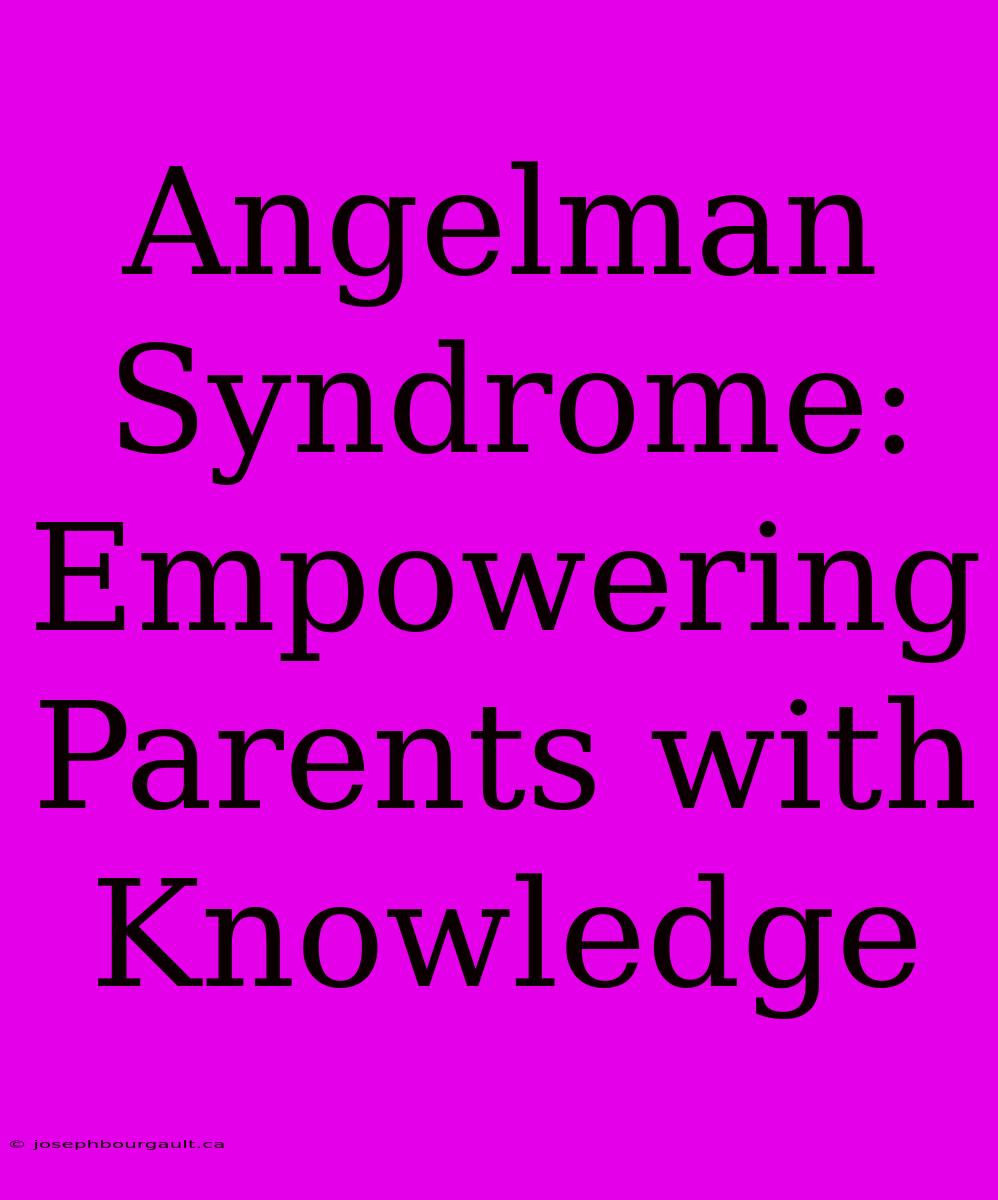Angelman Syndrome: Empowering Parents with Knowledge
Angelman syndrome (AS) is a rare genetic disorder that affects the nervous system, causing developmental delays, intellectual disability, and unique behavioral characteristics. While AS is a lifelong condition, understanding the syndrome and its implications is crucial for parents to navigate the challenges and empower their children to lead fulfilling lives.
Understanding Angelman Syndrome
What causes AS?
Angelman syndrome is caused by a deletion or mutation in the UBE3A gene located on chromosome 15. This gene plays a crucial role in the development and function of the nervous system. The condition can occur due to:
- Deletion: The most common cause, where a portion of chromosome 15 is missing.
- Mutation: Changes in the UBE3A gene itself.
- Uniparental disomy: Inheritance of two copies of chromosome 15 from the same parent.
- Imprinting defects: Problems with the process of turning certain genes on or off.
**What are the symptoms of AS? **
Children with AS typically display a range of symptoms, including:
- Developmental delays: Challenges with speech, language, and motor skills.
- Intellectual disability: Varying levels of cognitive abilities.
- Seizures: Episodes of uncontrolled electrical activity in the brain.
- Happy demeanor: Often characterized by excessive laughter, smiling, and a generally positive disposition.
- Movement and balance issues: Challenges with coordination, gait, and fine motor skills.
- Sleep disturbances: Difficulty falling asleep and staying asleep.
- Communication difficulties: Limited verbal skills, often relying on non-verbal communication.
- Hypersensitivity to sensory stimuli: Overreactions to noise, light, or touch.
Diagnosis
Diagnosis of AS often involves a combination of clinical evaluation, genetic testing, and observation of characteristic behaviors.
Empowering Parents: Navigating the Challenges
Living with a child with AS can be both rewarding and challenging. Here are some key aspects to consider:
Early Intervention: Early intervention therapies like speech therapy, occupational therapy, and physical therapy can significantly improve a child's development and quality of life.
Building Communication: Finding alternative communication methods, such as sign language, assistive technology, or picture exchange systems, is crucial for supporting communication and understanding.
Managing Seizures: Medication and sometimes surgical interventions can help control seizures and reduce their impact on the child's well-being.
Behavioral Management: Positive reinforcement, consistent routines, and understanding their unique communication style can help manage challenging behaviors.
Building a Support System: Connect with other families who have children with AS through support groups and online communities. Sharing experiences, resources, and emotional support can be invaluable.
Advocating for Your Child: Educate yourself about AS and its implications to become a strong advocate for your child's needs. Learn about available resources, legal rights, and educational options to ensure their well-being and access to appropriate services.
Focusing on Strengths: Celebrate your child's unique talents and abilities. Encourage their interests and passions, promoting a sense of self-worth and independence.
Looking Ahead:
The future for children with AS can be bright and filled with opportunities. With proper care, support, and education, they can lead fulfilling lives, contributing to their communities and finding joy in their daily experiences.
Resources:
- The Angelman Syndrome Foundation:
- Angelman Syndrome UK:
- Angelman Syndrome Association of Canada:
By understanding Angelman syndrome, embracing its challenges, and focusing on the strengths of their children, parents can empower them to reach their full potential. Remember, you are not alone on this journey. Seek support, advocate for your child's needs, and celebrate their unique individuality.

